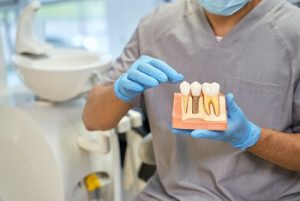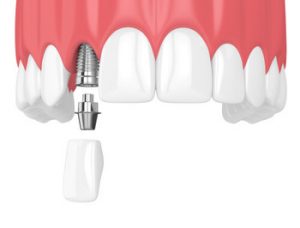When considering dental implants, the global choices can be overwhelming, particularly when looking at options in the Philippines versus Australia. This blog delves into the intricacies of dental implants, highlighting the advantages of undergoing this procedure in Australia compared to the Philippines. With the healthcare sector rapidly evolving, understanding the nuances of such treatments becomes imperative for making informed decisions. We aim to equip you with the knowledge needed to navigate the treatment of dental implants. Philippines will be compared to the healthcare in Australia, so you make the right choice.
Understanding Dental Implants
Dental implants have revolutionised tooth loss treatment, offering a durable and aesthetically pleasing solution. A dental implant is a titanium post surgically inserted into the jawbone as a substitute for the tooth root. A crown, bridge, or denture is then attached to the implant, miming the appearance and function of natural teeth.
Dental implants’ success lies in their ability to integrate with the bone, a process known as osseointegration. This makes them a stable and long-lasting option. Dental implants improve oral health and aesthetics, preserve jawbone integrity, and prevent the shifting of adjacent teeth.
Advantages of Getting Dental Implants in Australia
Expanding on the advantages of obtaining dental implants in Australia highlights the superior quality of care available. It underscores the value of investing in oral health through reputable dental clinics and experienced professionals. Understanding the benefits of dental procedures, costs, and the overall treatment experience can help individuals make informed decisions regarding their dental health.
Emphasis on Quality and Advanced Dental Procedures
 In Australia, dental clinics are at the forefront of incorporating advanced technologies and procedures, ensuring that patients receive care that is not only effective but also minimally invasive.
In Australia, dental clinics are at the forefront of incorporating advanced technologies and procedures, ensuring that patients receive care that is not only effective but also minimally invasive.
State-of-the-art imaging and surgical techniques allow for precise implant placement, reducing the risk of complications and improving the outcomes of dental implant treatment. This focus on adopting the latest advancements in implant dentistry translates into a smoother and more comfortable experience for the patient, closely mimicking the function and appearance of natural teeth.
Access to Affordable Dental Implants Without Compromising Quality
While affordable dental implants might seem contrary to high-quality care, Australian dental clinics effectively bridge this gap. The dental implants cost in Australia is often thought to be higher due to the stringent standards of care and the use of advanced technologies.
However, when considering the longevity and success rate of dental implants placed by experienced implant dentists, the cost becomes an investment in one’s oral health. Moreover, many Australian dental clinics offer payment plans or financing options, making dental implants more accessible to a broader audience.
Rigorous Standards in Implant Dentistry
Australia’s dental clinics are governed by strict regulations and standards, ensuring that every dental procedure, especially complex surgical or invasive procedures like dental implants, is conducted within a framework that prioritises patient safety and outcomes. This regulatory environment ensures that dental professionals are highly qualified and clinics maintain the highest levels of hygiene and safety, significantly minimising the risk associated with dental implant procedures.
The Role of Experienced Implant Dentists in Ensuring Success
The success of dental implant treatment largely depends on the expertise of the implant dentist. Australian clinics are home to some of the most experienced and highly trained professionals in implant dentistry.
These dentists deeply understand the complexities involved in implant placement, bone grafting (if necessary), and customising prosthetics to match natural teeth.
Their expertise increases the success rate of dental implants and ensures that the implants’ aesthetics and functionality meet the highest standards.
Comprehensive Care from Initial Consultation to Post-Operative Support
One critical advantage of choosing an Australian dental clinic for your dental implant treatment is the holistic approach to patient care.
Patients receive comprehensive support from the initial consultation, where a thorough assessment is made to determine their suitability for dental implants through the surgical procedure and beyond.
This includes detailed pre-operative planning, careful management of the dental implant costs to ensure affordability, and meticulous post-operative care to monitor the healing and integration of the implant.
Emphasis on Bone Health and Successful Integration
Bone grafting is a procedure that might be required to ensure the jawbone is strong enough to support dental implants.
Australian dental clinics offer advanced options in bone grafting techniques, ensuring that even patients who have experienced bone loss are candidates for dental implants. The emphasis on ensuring the health and adequacy of the jawbone for implant placement highlights Australia’s thorough and patient-centric approach to dental care.
Ensuring the Longevity and Durability of Dental Implants
The goal of any dental implant procedure is to replace missing teeth with options as close to natural teeth as possible, not just in appearance but also in function and longevity.
Australian dental clinics focus on ensuring that each dental implant is tailored to the individual, offering a solution that looks natural and is durable and long-lasting.
The quality of materials used, combined with the expertise of dental professionals, contributes to the high success rates and satisfaction among patients receiving dental implants in Australia.
The decision to undergo dental implant treatment involves considering various factors, including the quality of care, the expertise of the dental professionals, the cost, and the expected outcomes. In Australia, patients benefit from a healthcare system that upholds the highest standards in dental care, advanced dental procedures, and patient safety.
The advantages of receiving dental implants in Australia—from access to experienced implant dentists, advanced bone grafting techniques, and comprehensive pre and post-operative care—underscore the commitment to providing outcomes that enhance patients’ oral health and overall well-being.
Drawbacks of Getting Dental Implants in the Philippines
While dental tourism, including the pursuit of dental implant surgery in countries like the Philippines, offers the allure of affordable dental implant costs and a holiday experience, there are several critical considerations to weigh. The decision to travel abroad for dental procedures, especially for complex surgical or invasive procedures such as dental implants, involves evaluating potential drawbacks that could affect the treatment’s long-term success and health outcomes.
Variability in Standards of Care
One primary concern with dental implant surgery in the Philippines is the variability in healthcare standards. Despite the presence of highly skilled and experienced implant dentists, the range in quality of care among clinics can be significant.
This inconsistency can pose risks, as the success of dental implants heavily relies on the precision of the surgical procedure and the stringent adherence to post-operative care protocols. Variability in care standards may lead to complications, compromising the health and functionality of the dental implants and surrounding natural teeth.
Risks Associated with Surgical or Invasive Procedures Abroad
Dental implant surgery, like any surgical or invasive procedure, carries inherent risks such as infection, implant failure, or complications related to anaesthesia.
Managing potential complications can become challenging when such procedures are performed abroad, especially after the patient returns home. If complications arise after returning to one’s home country, accessing timely and appropriate care can be difficult, potentially leading to adverse outcomes.
Long-Term Follow-Up and Continuity of Care
A crucial aspect of dental implant treatment is the need for long-term follow-up and sometimes additional adjustments or corrective procedures.
When dental implants are placed overseas, continuity of care can become an issue. Regular follow-ups with the same dental clinic or dentist who performed the initial surgery are often impractical, making it challenging to address any delayed complications or adjustments necessary to ensure the implants’ optimal integration and function.
Communication Barriers and Understanding of Treatment Plans
Effective communication between the dentist and patient is vital for the success of dental implant treatment. This includes a thorough understanding of the surgical procedure, post-operative care instructions, and expectations for recovery and outcomes.
When undergoing dental implant surgery in a foreign country, language barriers and cultural differences can hinder clear communication, potentially leading to misunderstandings regarding the treatment plan and care instructions, which are critical for the implants’ success.
Dental Tourism: Weighing the Costs and Benefits
While the affordable dental implant cost is a significant draw for many considering dental tourism in the Philippines, it’s essential to consider the total cost, including travel, accommodation, potential follow-up visits, and the risk of additional expenses, should complications arise. These hidden costs can sometimes offset the initial savings, especially if the treatment results in complications that require corrective procedures back home.
Evaluating the Expertise and Experience of Overseas Dentists
 The success of dental implant surgery largely depends on the expertise and experience of the implant dentist. While many dentists in the Philippines are well-qualified and experienced in implant dentistry, verifying their credentials and comparing them to the standards expected in one’s home country can be challenging. Patients must conduct thorough research and seek out reputable clinics to mitigate the risks associated with varying levels of expertise and experience.
The success of dental implant surgery largely depends on the expertise and experience of the implant dentist. While many dentists in the Philippines are well-qualified and experienced in implant dentistry, verifying their credentials and comparing them to the standards expected in one’s home country can be challenging. Patients must conduct thorough research and seek out reputable clinics to mitigate the risks associated with varying levels of expertise and experience.
Opting for dental implant surgery abroad, particularly in the Philippines, is appealing due to the promise of reduced costs and the additional lure of a holiday. However, the potential drawbacks, including variability in the standard of care, risks associated with undergoing surgical procedures abroad, challenges in ensuring continuity of care, and possible communication barriers, necessitate careful consideration.
Dental Implants Procedure
The dental implant procedure is a sophisticated treatment designed to replace missing teeth with artificial ones that look, feel, and function like natural teeth. This multi-step process involves several stages, each critical to ensuring the successful integration and longevity of the dental implants. Understanding each phase can help patients prepare for what to expect during their procedure.
Initial Consultation and Planning
The first step of the dental implant procedure involves a thorough consultation with an experienced implant dentist. During this visit, the dentist will review the patient’s dental and medical history, conduct a comprehensive oral examination, and utilise imaging techniques such as X-rays or CT scans.
These assessments help evaluate the health of the jawbone and the positioning of the implants and identify any potential issues that need to be addressed before implant placement, such as bone grafting.
Bone Grafting (If Necessary)
Not all patients are immediately ready for dental implants due to insufficient bone density or volume in the jaw where the implant will be placed. In such cases, bone grafting may be necessary to provide a solid foundation for the implant.
Bone grafting is a process in which bone from another area of the body or synthetic bone material is grafted onto the jawbone to strengthen it. This procedure requires several months of healing before the dental implant procedure can proceed.
Implant Placement
Once the jawbone is prepared or deemed ready for the implant, the next step is to place the titanium implant into it. This procedure is typically performed under local anaesthesia to minimise discomfort. The implant acts as a substitute for the root of the missing tooth.
After the implant is placed, a healing period is allowed for osseointegration, where the jawbone grows around and bonds with the implant’s surface. This process can take several months and is crucial for providing the strength and stability needed to support the replacement teeth.
Abutment Placement
After osseointegration is complete, the next phase involves placing the abutment. The abutment is a small connector post that securely holds the new tooth. To place the abutment, the dentist may need to reopen the gum to expose the implant.
The abutment is then attached to the implant, and the gum tissue is closed around but not over it. In some cases, the abutment is placed simultaneously with the implant. After the abutment is placed, a healing period is required for the gum tissue around it to heal properly.
Fabrication and Fitting of the Prosthetic Tooth
While the gums heal, dental impressions of the patient’s mouth are taken to create a model. This model is used to custom design and fabricate the prosthetic tooth (crown), which will be attached to the abutment. The crown matches the colour, shape, and size of the patient’s natural teeth to ensure a seamless and aesthetic result.
Attachment of the Prosthetic Tooth
The final step in the dental implants procedure is the attachment of the prosthetic tooth or teeth to the abutment. Once fitted, the crown is either screwed or cemented onto the abutment to ensure it remains in place. This phase marks the completion of the dental implant process, leaving the patient with a strong, stable, and natural-looking tooth.
Post-Procedure Care and Follow-Up
Following the placement of the dental implant, proper oral hygiene and regular dental check-ups are essential to ensure its health and longevity.
The dentist will provide specific instructions on how to care for the new implant and schedule follow-up visits to monitor the implant, teeth, and gums to ensure they remain healthy.
Each step of the dental implants procedure plays a vital role in the overall success of the treatment. By adhering to the guidance of experienced dental professionals and committing to proper post-procedure care, patients can achieve long-lasting and satisfying results from their dental implant treatment, restoring both function and confidence in their smile.
Who are the Ideal Candidates For Dental Implants
Identifying the ideal candidates for dental implants is crucial for ensuring the success and longevity of this dental procedure. Dental implants offer a durable and aesthetic solution for replacing missing teeth, but only some are suitable candidates. Several factors determine a person’s eligibility for dental implants, ranging from general health conditions to specific oral health statuses. Understanding these criteria can help individuals gauge whether dental implants are the right choice.
Adequate Bone Density and Health
One of the most critical factors for dental implant success is sufficient bone density in the jaw. The implant needs a stable foundation, which the jawbone provides.
If a person has experienced significant bone loss due to periodontal disease or other reasons, they may require bone grafting before proceeding with dental implants. The procedure enhances bone density, providing the necessary support for the implant.
Good Overall Health
 Getting dental implants involves undergoing surgical procedures, so the candidate’s overall health must be good. Conditions that impair healing or pose surgical risks, such as uncontrolled diabetes, significant heart disease, or immune deficiencies, may affect the success of dental implants.
Getting dental implants involves undergoing surgical procedures, so the candidate’s overall health must be good. Conditions that impair healing or pose surgical risks, such as uncontrolled diabetes, significant heart disease, or immune deficiencies, may affect the success of dental implants.
Patients should have their health conditions well-managed before undergoing implant surgery. Smoking is another significant factor that can impede healing and increase the risk of implant failure, so smokers are often encouraged to quit before the procedure.
Healthy Gums
Healthy gums are essential for the success of dental implants. Gum disease can jeopardise the stability of dental implants, leading to potential failure. Candidates must have healthy gums or have received treatment to resolve any periodontal disease before implant placement. Regular dental check-ups and good oral hygiene are critical to maintaining gum health and the longevity of dental implants.
Commitment to Oral Hygiene and Regular Dental Visits
Ideal candidates for dental implants are those committed to maintaining excellent oral hygiene and regularly visiting their dentist.
Dental implants require the same care as natural teeth, including brushing, flossing, and professional cleanings, to prevent infections and ensure longevity. Candidates must be willing to adhere to these practices to ensure the success of their dental implants.
Non-Smokers or Those Willing to Quit
Smoking significantly affects the healing process and has been associated with a higher rate of implant failure. Ideal candidates for dental implants are non-smokers or those who are willing to quit smoking before the implant procedure and throughout the healing process. Quitting smoking improves the chances of implant success and benefits overall health.
Realistic Expectations
Having realistic expectations about the outcomes of dental implant surgery is crucial. While dental implants are designed to look and feel like natural teeth, candidates should understand the process, timeline, and what can realistically be achieved. Communication with a dental professional can help set appropriate expectations and ensure satisfaction with the results.
Age Considerations
Dental implants are typically recommended for individuals who have stopped growing, making them more suitable for adults. However, there are no upper age limits for dental implants; older adults can be candidates if their overall health and oral conditions meet the necessary criteria.
Conclusion
Choosing between dental implants in the Philippines and Australia involves considering factors such as quality of care, expertise, and post-operative support.
The advantages of opting for dental implants in Australia—such as high standards of care, advanced technology, and comprehensive patient support—make it a compelling choice for those seeking long-term dental solutions. While the initial cost may be higher, the investment in quality care ensures the longevity and success of the treatment, ultimately enhancing oral health and quality of life.
For those considering dental implants, consulting with experienced professionals is crucial. Beyond Infinity Dental offers expert advice and high-quality dental implant treatments, ensuring you receive the best care tailored to your needs. Contact us at (02) 8806 3799 to explore your dental implant options and embark on the journey to a healthier, more confident smile.
Engaging with professionals prioritising patient care and quality outcomes is essential in making informed decisions about dental health. Beyond Infinity Dental is committed to providing exceptional dental care and guiding you to achieve optimal oral health and the confidence that comes with it.
Note: Any surgical or invasive procedure carries risks. Before proceeding, you should seek a second opinion from an appropriately qualified health practitioner.
References:
https://www.teeth.org.au/government-dental-care
https://www.dentalhealth.org/the-downsides-of-dental-tourism










